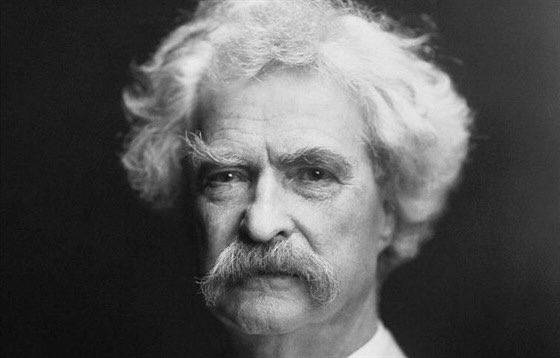Mark Twain traveled extensively and once said, "Travel is fatal to prejudice, bigotry, and narrow-mindedness, and many of our people need it sorely on these accounts. Broad, wholesome, charitable views of men and things cannot be acquired by vegetating in one little corner of the earth."
Samuel Langhorne Clemens (November 30, 1835 - April 21, 1910), known by his pen name Mark Twain, was an American writer, humorist, entrepreneur, publisher, and lecturer. He was lauded as the "greatest humorist the United States has produced." His novels include "The Adventures of Tom Sawyer" (1876) and its sequel, "The Adventures of Huckleberry Finn" (1884), the latter often called "The Great American Novel."
Twain was raised in Hannibal, Missouri. He served an apprenticeship with a printer and then worked as a typesetter, contributing articles to the newspaper of his older brother Orion Clemens. He later became a riverboat pilot on the Mississippi River before heading west to join Orion in Nevada. He referred humorously to his lack of success at mining, turning to journalism for the Virginia City Territorial Enterprise.
His humorous story "The Celebrated Jumping Frog of Calaveras County" was published in 1865, based on a story that he heard at Angels Hotel in Angels Camp, California, where he had spent some time as a miner. The short story brought international attention and was even translated into French.
His wit and satire, in prose and speech, earned praise from critics and peers, and he was a friend to presidents, artists, industrialists, and European royalty.
Another noteworthy true story from Mark Twain's life revolves around his world tour in 1895-1896, an endeavor that was not only an adventure but also a financial necessity.
At the time, Twain was grappling with severe financial difficulties, partly due to bad investments in ventures like the Paige typesetting machine, which turned out to be a costly failure.
To pay off his debts and avoid bankruptcy, Twain embarked on a lecture tour that took him across the United States, Canada, Australia, New Zealand, India, and South Africa, among other places. Accompanied by his family, Twain entertained audiences with his storytelling and wit, all while observing local cultures and customs.
The tour was a resounding success, both financially and as a source of literary inspiration. It led to one of his lesser-known but fascinating works, "Following the Equator," published in 1897.
The book is a vivid account of his travels, filled with social commentary, humorous anecdotes, and keen observations on human nature and society. This world tour not only saved Twain from financial ruin but also rejuvenated him as a writer, adding a global perspective to his already rich tapestry of American narratives




No comments yet
Be the first to share your thoughts!